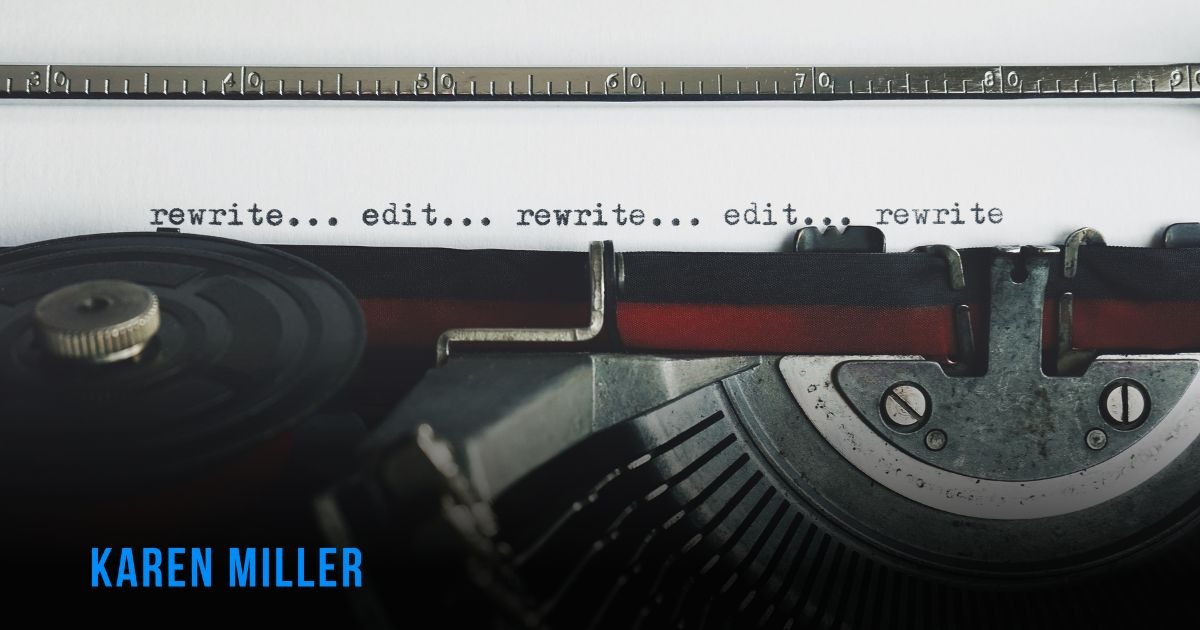The Great Agent Hunt
- 19 Jul 2008 03:21
- 1491

It’s one of the biggest headaches, heartaches and mysteries of the writing game: getting an agent. How do you do it? When do you do it? Do you need to do it at all? The whole agent thing can be a minefield – an agent who works well with one writer is poison for another, for example. It’s a very individual experience, very personal. The answers aren’t always clear cut.
But here’s one thing you can absolutely trust: agents don’t sell books. Good writing sells books. In other words, the best agent in the world cannot sell substandard material. Agents facilitate the sale of a book, and can play an important role in shaping a writer’s career. But it’s the writing that matters most of all, which means an unpublished author needs to be certain the work they’re submitting to an agent is the very best work they’re capable of writing at that time.
That means you don’t submit a first draft or an incomplete manuscript to an agent, hoping they’ll take you on. You submit a manuscript that’s been completed and rewritten and polished and critiqued and considered to within an inch of its life. One of the biggest mistakes new writers make is trying to put the cart before the horse: in other words, looking for an agent before the work is of publishable standard, as though an agent can wave a magic wand and make a publisher take the work. Not true!
Remember this saying: You don’t get a second chance to make a first impression. And agents are very busy people – if they think you’ve wasted their time with a substandard submission, they’ll be less likely to consider you again down the road.
But while you’re in the process of perfecting your manuscript, which is your calling card, you can do some research. Regardless of what country you’re in, contact your local writers’ centre, the national association of authors, or writers’ organisations like Sisters in Crime, Romance Writers of America, Science Fiction Writers of America (or your country’s equivalent) – basically, any organisation that caters to writers who write what you write. All these organisations have listings of agents, or access to listings, that can help you.
If there are conventions or writers’ group meetings held by any of these organisations, get to as many as you can. Often agents and editors attend, and hold panels/workshops that will help you in your journey. You can also subscribe to industry-related magazines (eg Locus for the spec fic field), since they often have industry items talking about books sales, naming agents. There are also a couple of comprehensive agent guides available from online bookstores, or through your local bookseller. One is compiled by Jeff Herman, the other by Chuck Sambuchino. These are particularly useful because they indicate which agents represent which genres in fiction – not all agents are the same. You’re wasting everybody’s time if you submit a crime novel to an agent who deals only with non-fiction, for example.
And don’t forget the internet. Many agents now have websites and blogs – one of the best is Pub Rants (http://pubrants.blogspot.com), but there are others. Just as important is Preditors and Editors, a wonderful service warning of scams and charlatans in the agenting/publishing business. This site is essential reading, and can be found at http://www.invirtuo.cc/prededitors.
What you really shouldn’t do is ask an author to help you to find an agent … especially if said author isn’t a close personal acquaintance. It’s not that authors don’t understand the struggle, or want to see new authors kept downtrodden and unpublished. Quite simply, authors have enough on their plates trying to drive their own careers, without also driving the careers of other writers. It’s not their job to find you an agent. That’s your job.
When your manuscript is – as best as you can tell – ready to be shown to a literary professional, you need to compile a list of agents to approach from the masses of names you’ve gathered in the research phase. The criteria is simple: they have to a)represent the kind of material you write, b)currently be looking for new clients and c)be above board, ethical and free of scandal and wrongdoing.
One aspect that’s becoming less important is the question of geography. In Australia, for example, the pool of literary agents is small. Even smaller is the subset of agents who represent genre – and many of those aren’t open for new clients. So you need to think global – in fact, you don’t have a choice. Likewise it’s not essential for an American agent to be based in Manhattan, the hub of US publishing, or a UK agent to be in London. The internet and email make everyone a next-door neighbour.
If you’ve done your research properly, by the time you’ve compiled that shortlist you’ve already got a fairly clear idea of who you’d really like to have representing you. It can be helpful to rank the list in order of preference, and approach them accordingly. It is possible to send out multiple simultaneous enquiries, but that can be a minefield. Some agents don’t mind, others get very offended. Best to err on the side of caution. Yes, it can take longer … but the alternative can be a door closed in your face.
The most important thing to remember at this point, whether you submit singly or simultaneously, is this: follow each agent’s submission guidelines TO THE LETTER. In other words, do EXACTLY what they ask, without exception. Why on earth would an agent want to take you on if you ignore the very first thing they ask you to do?
There’s no way of saying how long this process will take. You might connect with the first agent on your list, or you might have to make another four lists. Every author’s journey is different. Perserverance is the key. Rejections are made for many reasons, and only one of them is because the writing’s not good enough. Often, that’s not the case at all – it’s just a question of taste or timing.
If – when – you do receive a rejection, take a deep breath and move on. The WORST thing you can do is heap abuse on the agent who’s passed on your work. It’s immature, it’s unprofessional, and if you think agents don’t get together and compare notes, you’re nuts. No agent is under an obligation to make your publishing dreams come true. They have every right to knock you back, without giving you any reason at all. Your job is to cop rejection on the chin and keep on trying. Besides, who knows? One day in the future this agent might be the right agent for you. Do you really want to burn your bridges so early in the game?
Once you’ve got an agent interested in representing you, it’s time to take a deep breath and step back. The author/agent relationship is a partnership. Agents do not employ authors. They are not the gatekeepers of a writer’s career. Too many writers take a passive role in their own writing lives. Be proactive, be involved, ask questions, expect answers. Agents are an important part of the publishing equation, but they’re not infallible and they don’t own the authors they represent. At the end of the day, each writer must take ownership of their career. And while you and your agent might well end up being friends, this is first and foremost a BUSINESS relationship. Don’t ever forget that. Be businesslike in all your dealings, and don’t let emotion dictate your choices.
To that end, before you sign any kind of agency contract, you need to interview the prospective agent to make certain this is someone you want to do business with. You need to have compatible styles, compatible goals, an understanding of how each of you likes to work. An agent with whom you’re stylistically/temperamentally incompatible is worse than no agent at all. Because if things go wrong, and you part ways, they will still be receiving income from your work … and that can be tricky, to say the least.
It’s easy for new writers to panic, to snatch, to grab the first offer that comes along in the terror that it’ll also be the last. That’s not true. If you’re a publishable writer, more than one agent will want to take you on. You DO NOT have to take the first offer that’s made. You have to take the RIGHT offer. Because changing agents can be a real pain in the arse.
So have a chat to your prospective agent. Chat to some of the agency’s existing clients, to get another perspective. Be very clear on how you like to operate, as a writer and an individual, and let the agent know this. Find out how they like to operate. Make absolutely certain up front that you’re going to make a good team. Ask lots of questions. Be certain you’re happy with the answers. If you have any doubts at all address them, and if you don’t like the answers, walk away.
It’s your career. It’s your life. You’re in the driving seat, nobody else. You’re looking to team up with an agent who likes your work, believes in your work, and with whom you can build a solid, long-lasting relationship full of mutual respect and success. Sometimes that’s an agent from one of the big, high profile agencies. Sometimes it’s not. The best agent in the world is the one who fits YOU. Don’t kid yourself and say yes to an agent who isn’t a good fit, no matter how high profile or glamorous or big name they are. It can only end in tears.
And if you do make a choice, then down the track find you’ve made a mistake, walk away gracefully with your dignity intact. Make the break quickly, cleanly and professionally … and learn from what’s happened.
Of course, not every published author has an agent. It’s possible for a writer to sell a manscript directly to an editor, and then take care of all the business stuff themselves. But on the whole, it’s generally not advisable. Agenting is a stressful, exacting job that takes up a great deal of time and requires enormous amounts of industry knowledge and contacts. Writers are better off focusing their energies on what they do best – writing – and letting an expert in contracts, negotiations and the intricacies of international publishing handle that side of the business. That’s how an agent earns their commission, after all. That’s their expertise.
So there you have it. It can be a slow and frustrating business, absolutely, but it is possible for a new author to find an agent. In fact, new authors are doing it every day. Fingers crossed the next one is you!
